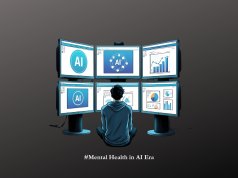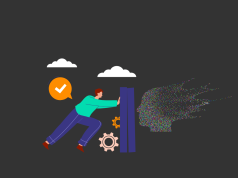In recent years, the global labor landscape has undergone a seismic shift, a change so profound that its ripples are felt in every corner of the workforce. With the advent of advanced technology, the relentless tide of globalization, and the unprecedented upheaval brought about by the COVID-19 pandemic, we find ourselves standing at the crossroads of a new era in employment—one that promises innovation and opportunity, yet also harbors the potential for considerable psychological strain on workers.
As a seasoned Human Rights Activist, I have watched with keen interest—and growing concern—as these dynamics reshape the very fabric of our work lives. Traditional job structures and long-established career pathways are rapidly morphing or dissolving altogether. The concept of a ‘job for life,’ once the bedrock of employment stability, seems increasingly like a relic of the past.
Technology has been both a liberator and a usurper in this drama of change. Automation and Artificial Intelligence (AI) stand to unlock tremendous productivity and create new and unforeseen roles. However, they also pose a stark threat to a range of occupations, leaving many employees facing the anxiety of displacement and the daunting challenge of retraining for an uncertain future.
Moreover, the pandemic has forced a grand experiment in remote work, catapulting us into a world where the boundaries between home and office blur. This newfound flexibility can enhance work-life balance, yet it also risks eroding the psychological boundaries that help individuals manage stress. Many employees now navigate the complexities of home-schooling their children while juggling Zoom calls, all without the respite of a commute or the sociable buffer of a workplace environment.
The gig economy, meanwhile, promises freedom and entrepreneurship but often delivers insecurity and relentless pressure. The illusion of control over one’s work belies the reality of an anxiogenic scramble for the next job, the next gig, the next chance to earn—to say nothing of the absence of benefits, pensions, and health care that typically accompany more traditional roles.
Amidst this flux, the onus of responsibility falls heavily upon corporations and governments. It is incumbent upon these entities to foster equitable transitions and to establish robust support systems for those navigating the roiling waters of change. They must proactively address the mental health repercussions and rising tide of worker anxiety, ensuring that policies and practices evolve in tandem with the shifting demands of the workplace.
The question of whether current labor laws are sufficiently nimble to encompass these transformations is a pressing one. Existing frameworks were forged in a different age and are often ill-suited to the nuances of our digital, decentralized employment reality. We must advocate for and implement policy recommendations that protect workers’ mental health and human rights within this ever-evolving ecosystem. This could encompass measures such as universal basic income to cushion the impact of AI displacement, or mental health ‘first aid’ training as a mandatory component of management education.
To neglect these dimensions of the new work paradigm is to court a future labor force that is disengaged, distressed, and disenfranchised. As activists, policy-makers, and human beings, we must strive to ensure that the brave new world of work is one that values not only productivity and innovation but also the fundamental well-being and dignity of every worker.
In conclusion, the transformations we witness today are not mere shifts in the way we work; they are transformations in the way we live. The tide is turning, and it is our collective responsibility to chart a course that leads not into the turbulent waters of exploitation and uncertainty, but towards the safer shores of sustainability, security, and mental well-being for the labor force that will inhabit this new normal.


























